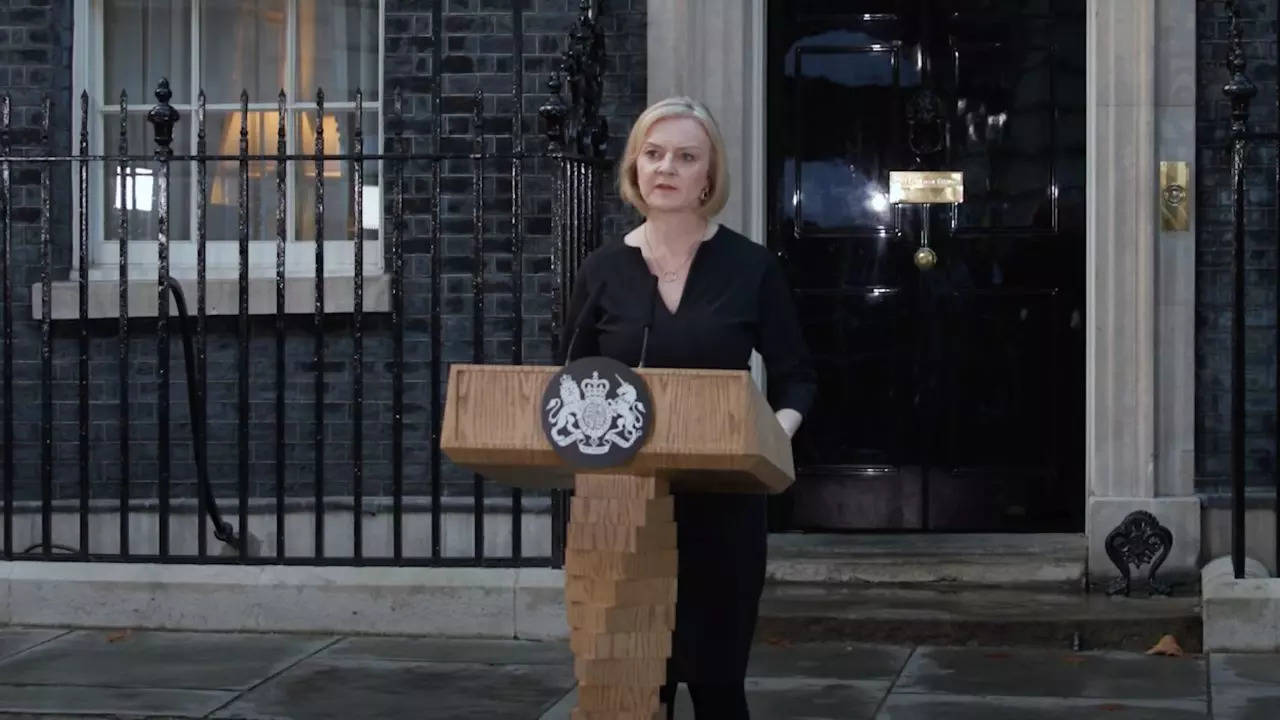UK's new govt beats a retreat after slashing tax for top earners
Kwasi Kwarteng, UK’s Chancellor of the Exchequer said he will not reduce the highest income tax, which is applicable to those earning 150,000 pounds a year, from 45% to 40%. On September 25, British Pound plunged to an all-time low of $1.0382 and Gilt yields spiked after the new government announced the tax cuts.

(File photo) UK PM Liz Truss wore black to mourn the demise of Queen Elizabeth II
Photo : AP
In a quick volte-face, the UK on Monday said it is scrapping the plan to reduce the tax slab of top earners following a public outcry and market upheaval, which sent the pound tumbling to all-time lows and caused a bond market rout.
Kwasi Kwarteng, UK’s Chancellor of the Exchequer said he will not reduce the highest income tax, which is applicable to those earning 150,000 pounds a year, from 45% to 40%.
“It is clear that the abolition of the 45p tax rate has become a distraction from our overriding mission to tackle the challenges facing our country. As a result, I'm announcing we are not proceeding with the abolition of the 45p tax rate. We get it, and we have listened,” Kwarteng said in a statement issued earlier today.
On September 25, British Pound plunged to an all-time low of $1.0382 after the new government announced the tax cuts. The contagion spread to UK government bonds, known as Gilts, which rose to their highest levels since 1957 as investors fled UK's fixed income market following the announcement of the "unfunded" 'mini budget' by Kwarteng.
UK’s newest Prime Minister Liz Truss took on her role, promising to radically transform the sluggish economy. The 45 billion-pound ‘stimulus package’ recently announced by the Conservative leader hinged on tax cuts, but was received very poorly by the market and caused a significant loss of face for Truss and the new Chancellor.
“This will allow us to focus on delivering the major parts of our growth package. First, our Energy Price Guarantee, which will support households and businesses with their energy bills. Second, cutting taxes to put money back in the pockets of 30 million hard-working people and grow our economy. Third, driving supply side reforms - including accelerating major infrastructure projects - to get Britain moving,” said Kwarteng, giving details of what’s left of the new government's reforms plan.
Trending:
End of Article
Subscribe to our daily Newsletter!
Related News





HDFC Bank Q4 Results 2024 Announced: Private Bank Announces Bumper Dividend - Know Amount, Record Date, PAT And Other Details

Intel Designates India As Separate Region, Santhosh Viswanathan Takes Charge As MD - Details

Meet Tina Dabi's Sister Ria Dabi, Who Secured 15th Rank In UPSC, Know Her Monthly Salary And Other Government Perks

This Tata's Company Announces 250 pc Dividend - Know Stock's Name, Amount And Other Details

IMF's Gita Gopinath Breaks Down Global Capital Flow Trends | Here's What She Said








